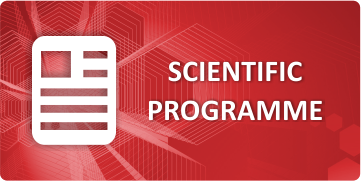
Pamela Fonju
William Paterson University, USA
Title: Factors Associated with Medication Adherence Among Hypertensive Adults in North West Region of Cameroon
Biography
Biography: Pamela Fonju
Abstract
Background - Hypertension is a primary risk factor for cardiovascular disease, premature morbidity and mortality worldwide. The World Health Organization (WHO) estimates a global prevalence of approximately 1 billion and project and increase to 1.7 billion by 2025. Global hypertension increase has been attributed to steady increase in developing countries. The use of anti-hypertensive medications have been shown to produce significant gains however non-adherence remains a global health problem. This study examines factors associated with medication adherence among hypertensive adults in the North West Regions of Cameroon.
Methods - Descriptive cross-sectional survey design; data collected by self-administered questionnaires. A convenience sample of established patients in two hospitals. Patients who presented for regular visits were administered 2 surveys: Demographic variables (15 items) and approved Morisky medication adherence questionnaire - Cronbach alpha .83 (Morisky et. al. 2007).
Results - Sample (n=200): (47%, n = 94) reported a normal blood pressure. Mean systolic blood pressure: 141mm/Hg and diastolic blood pressure was 85mm/Hg. Mean adherence score was 6.33, SD=2.089. 31% (n = 63)- low adherence, 32% (n= 64 ) medium adherence and 36% high adherence. A weak negative correlation was found in systolic BP(r(198) = -.204, p<.01) and in Diastolic BP (r(198) = -.237, p<.01).
Conclusions - The long-term reduction strategy of acute cardiovascular events associated with high medication adherence to antihypertensive treatment underscores its importance to hypertension control. Efforts focused on early antihypertensive treatment initiation and customized intervention programs may likely improve patient outcome and provide major benefits in global hypertension control efforts

